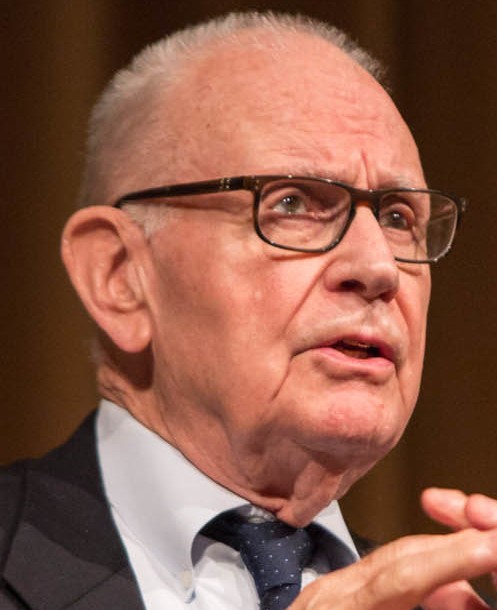By Lee H. Hamilton
Is the United States the greatest nation in the world? It’s a natural question to ask, given our penchant for displays of patriotism and our debates about American exceptionalism.
But I don’t much like the question.
Talking about how American greatness isn’t a very helpful exercise. It doesn’t do anything to make our country better or stronger. It plays to the stereotype of the ugly American, the idea that we are proud and boastful, insensitive to the values and accomplishments of others. No one likes to hear someone else talk about how important or powerful they are, whether it’s a person or a nation.
We often say that actions speak louder than words. The subject of American greatness is a great example of the truth of that old saying.
A recent Pew Research Center survey tried to gauge public opinion on the question, however, and the results are interesting. It asked if the United States “stands above” all other countries; if it’s one of the greatest countries, along with others; or if other countries are better than the U.S.

One in five respondents said the U.S. stands above all others, while 52% said it is one of the greatest countries. Another 27% said other countries are better. The results showed a measurable decline in American self-esteem since Pew asked the same questions four years ago.
Republicans were more likely than Democrats to say America is the greatest country. That might be expected, given the GOP’s traditional emphasis on patriotism, but the number of Republicans who take that position has declined: 31% of Republicans and Republican-leaning independents said the U.S. “stands above” other countries, compared to 40% in 2019. Democrats are also less likely today to say the U.S. is the greatest nation.
There’s also a split among age groups. Americans over 65 are most likely to say the U.S. stands above other nations. Many of those under 30 say other nations are better.
What do people elsewhere in the world think? About six in 10 have a generally favorable view of the United States, according to a Pew survey of 23 middle-income nations this year. Respondents were more likely to have positive views of President Joe Biden than they had of Donald Trump when he was president. Reassuringly, over half said the U.S. contributes to peace and stability in the world.
At the same time, a large majority in the international poll said the U.S. is inclined to interfere in the affairs of other nations. That finding should give us pause. Our efforts to promote peace and stability won’t be effective if we’re seen as a bully that’s pushing other countries around.
Similarly, claiming that America is the greatest nation doesn’t accomplish much. It takes time and energy that would be better spent doing whatever we can to make America the prosperous, secure, generous and truly democratic country that we want it to be.
Former Secretary of State Madeleine Albright said the U.S. is the world’s “indispensable nation.” Trying to play that role may have led us to make some foreign policy mistakes, but it has also helped us take on tough challenges, most successfully when we act as part of alliances such as NATO. Our support for Ukraine in resisting Russian aggression is a good example.
Our country has done a lot of good things in the world. We could take credit for it, but it’s better if we don’t. Our leadership will be more effective if we let our actions speak for themselves.




